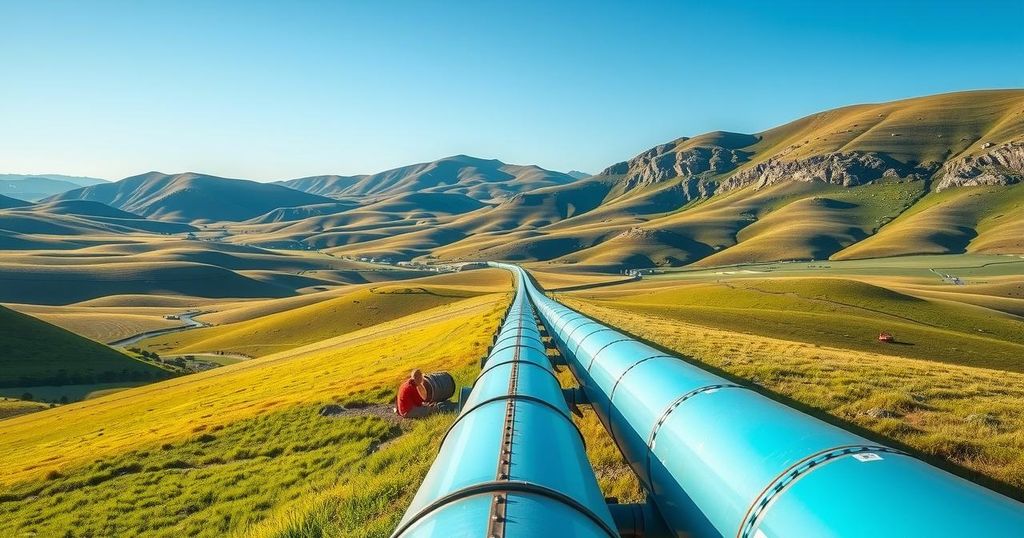Qatar to Supply Natural Gas to Syria via Arab Pipeline

Qatar is set to supply natural gas to Syria via Jordan, aimed at addressing Syria’s electricity shortages and re-establishing influence in the region. The initiative is part of Qatar’s strategy to channel gas supplies to Europe, despite complexities due to infrastructure issues and U.S. sanctions. Increased power from the project will support Syria’s interim government amid ongoing challenges in the electricity sector.
Recent developments in the Middle East have seen Qatar poised to supply natural gas to Syria through Jordan, a significant shift in regional dynamics. The agreement reportedly aims to alleviate Syria’s chronic electricity shortage while establishing Qatar’s renewed influence in the region, particularly following a decade marked by civil strife. This gas pipeline initiative also signifies Qatar’s long-term ambitions to transport its natural gas to Europe, utilizing Syria’s infrastructure.
Under an accord signed between Qatar’s development fund and Jordan’s energy ministry, gas will be delivered via the Arab Gas Pipeline to the Deir Ali power plant in southern Syria. The initial output increase at the plant is projected to be 400 megawatts daily, gradually improving Syria’s electricity supply, which has suffered from extensive damage and inefficiencies.
The deal has ostensibly received tacit approval from former President Donald Trump’s administration, which is interesting given Trump’s focus on promoting U.S. liquefied natural gas (LNG) exports to Europe. Jordan’s Energy Minister has indicated that Qatar will fully fund this initiative, demonstrating the cooperative nature of these regional efforts amidst ongoing tensions and sanctions.
Despite these advancements, Syria faces considerable challenges in rehabilitating its power infrastructure to accommodate such imports. The domestic electrical grid requires extensive repairs, and the process of transitioning to increased power supply remains complicated by existing logistical and financial constraints.
Political backing from Gulf states for Syria’s new leadership has materialized through this gas arrangement, yet concrete assistance is still hindered by U.S. sanctions. While a certain waiver allows limited transactions, uncertainties linger regarding financial engagements with Syria’s interim government, complicating future support.
In conclusion, Qatar’s decision to supply natural gas to Syria marks a pivotal moment in the Middle East, indicating both a commitment to improving Syria’s dire electricity conditions and a strategic maneuver to re-establish Qatar’s influence in regional energy markets. As this agreement unfolds, it may pave the way for broader geopolitical shifts, particularly concerning gas supplies to Europe. However, the underlying challenges faced by Syria, including vast infrastructural needs and the limitations imposed by international sanctions, continue to complicate these efforts and warrant close observation.
Original Source: oilprice.com








